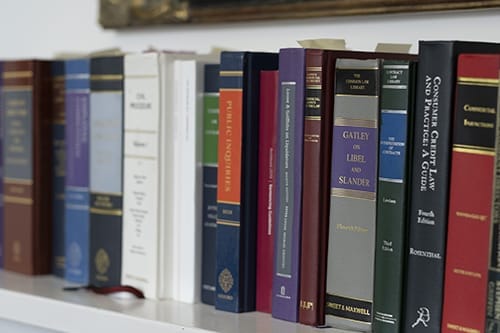Photo by Tetiana SHYSHKINA on Unsplash
image: small-stay-safe-sharon-mccutcheon-zOIZTkq0CX8-unsplash-scaled.jpg
image: tetiana-shyshkina-Qx2xApTbpoY-unsplash.jpg
Photo by Tetiana SHYSHKINA on Unsplash
image: small-stay-safe-sharon-mccutcheon-zOIZTkq0CX8-unsplash-scaled.jpg
image: tetiana-shyshkina-Qx2xApTbpoY-unsplash.jpg

We act on behalf of large international enterprises, UK institutions, SMEs, and high net worth individuals across all aspects of company and commercial litigation.

An exacting field, insolvency cases require the very highest levels of precision and expertise. Our blended team guarantees superior results whatever the nature of the case.

The number of civil fraud cases heard in the courts has undergone a 50% rise in recent years.

Our specialist team have significant experience both of representing individuals, private organisations, campaigners, charitable organisations, and public bodies who find themselves under scrutiny, required to give evidence, or face the prospect of appearing at a hearing.
The International Criminal Court has announced an investigation into Russia’s conduct in Ukraine as the invasion continues and more atrocities are alleged. Since the invasion began on 24th February 2022, more than 40 countries have referred Russia to the ICC for investigation.
Karim Khan, chief prosecutor at the International Criminal Court (ICC), confirmed that he would open an investigation into alleged Russian war crimes, and that he was satisfied that there is a reasonable basis to believe that both war crimes and crimes against humanity have been committed in Ukraine.
So, what will happen next?
How are war crimes defined?
The rules of war, or international humanitarian law, set out what can and cannot be done during an armed conflict.The core of these laws is enshrined by the Geneva Conventions.
Today, the ICC is charged with upholding the laws of war.The Rome Statute, grants the ICC jurisdiction over four main crimes:
What is the process for bringing perpetrators to book?
The ICC operates a six-stage process:
Cooperation with the UK, other international states, and the UN
The ICC is intended to complement, not to replace, national criminal systems; it prosecutes cases only when States do not are unwilling or unable to do so genuinely.
In the UK our mechanism is the Crimes Against Humanity and War Crimes Bill, which provides for the implementation of the Rome Statute of the ICC.This means that the UK provides support to the ICC for making arrests, transferring arrested persons to The Hague, freezing assets, and enforcing sentences.
The ICC operates in cooperation with the United Nations (UN).When a situation is not within the Court’s jurisdiction, the United Nations Security Council can refer the situation to the ICC granting it jurisdiction.
What will happen next for Putin?
Neither Russia nor Ukraine is a member of the ICC. However, as mentioned previously Ukraine has given its approval to examine alleged atrocities on its territory.It is unlikely Russia will decide to cooperate with the ICC and any trial would be delayed until Putin or any other defendants are arrested, such as soldiers, commanders, and heads of state.
Legal experts have raised the possibility of creating a separate tribunal to examine potential war crimes in Ukraine, which could be done through the United Nations or a treaty.
Leverets will continue to stay ahead of developments in Ukraine and the ICC investigation into Russian atrocities and will keep you updated via our website.
Please also get in touch if you would like to discuss the legal impact and practical consequences of Russian and Belarusian sanctions on your operations.